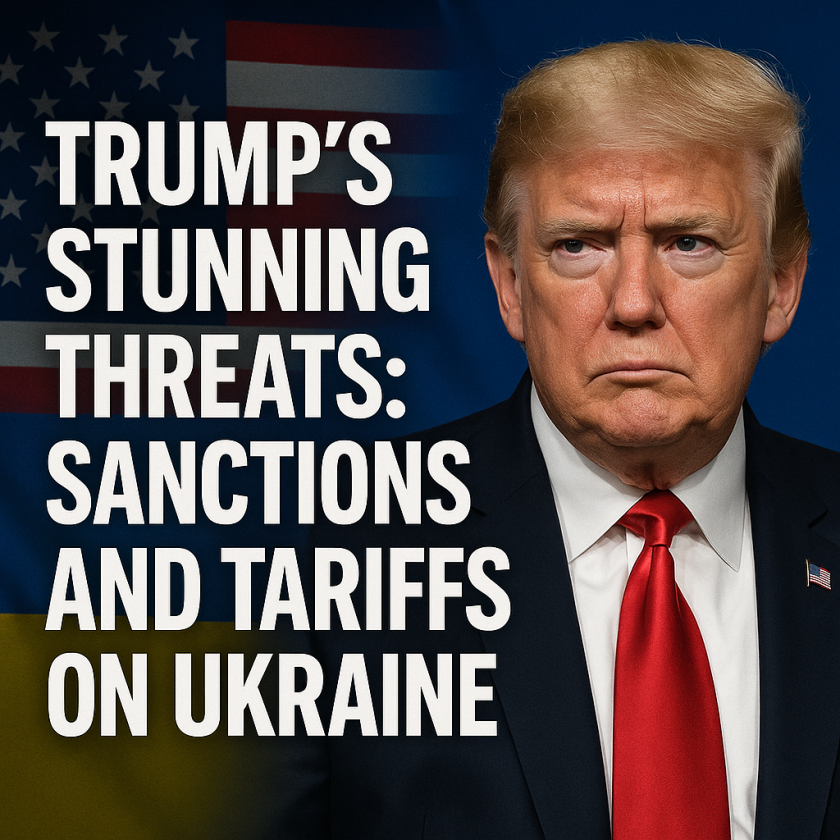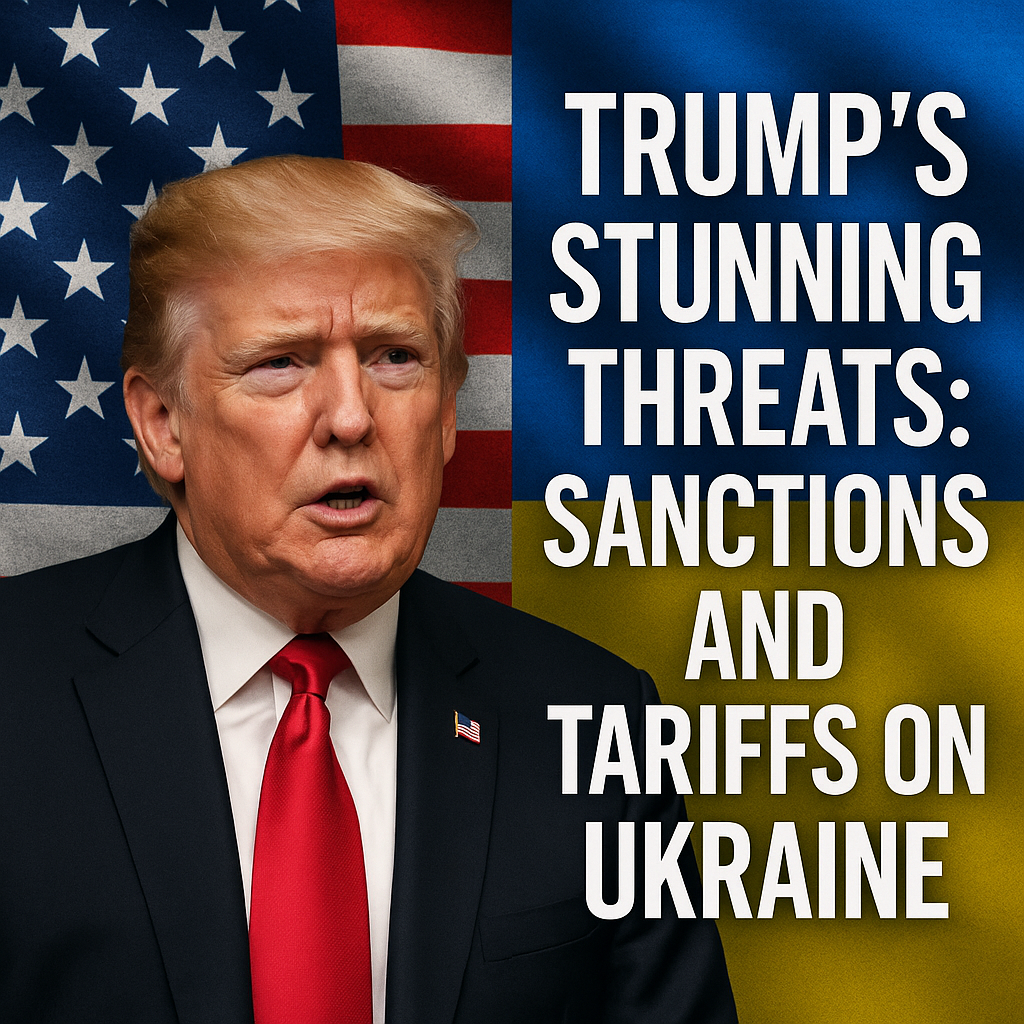Trump’s Stunning Threats: Sanctions and Tariffs on Ukraine
Trump’s Stunning Threats: Sanctions and Tariffs on Ukraine
Trump’s stunning threats against Ukraine raise significant questions about U.S. foreign policy and international relations. The former president made headlines recently by suggesting the implementation of sanctions and tariffs on Ukraine if he were to return to office. This statement has elicited a variety of responses, underscoring the complex dynamics at play.
Understanding Trump’s Position

Trump’s rhetoric around Ukraine is particular in light of ongoing geopolitical tensions. His recent comments imply that he views Ukraine’s financial relationship with the U.S. as one that requires reassessment. Specifically, he has stated that he would consider cutting off aid or imposing financial penalties if the country does not match its support for U.S. interests. This sentiment finds some backing among certain factions within the Republican Party, who argue that American taxpayer money should not be used to support foreign nations without adequate reciprocation.
Different Viewpoints on U.S. Aid to Ukraine
The notion of imposing sanctions or tariffs on Ukraine is controversial. Various perspectives highlight the nuances of U.S. involvement in the region:
1. Pro-Support Viewpoint:
– Many leaders in both parties argue that supporting Ukraine is essential for maintaining global order, particularly in light of Russian aggression. They stress that military and financial aid has been crucial in helping Ukraine defend its sovereignty. This perspective suggests that withdrawing support could embolden Russia and undermine NATO alliances.
2. Fiscal Responsibility Argument:
– On the other hand, some members of Congress, particularly those aligned with Trump’s views, advocate for a more restrained approach to international aid. They contend that the U.S. should focus on domestic issues before extending additional support abroad. This fiscal responsibility stance resonates with a segment of voters who are skeptical about foreign engagements.
3. Skeptics of Trump’s Approach:
– Critics of Trump’s rhetoric argue that his threats weaken U.S. global credibility. They assert that leveraging sanctions against a nation allied with the West could send a dangerous signal not just to Ukraine but to other allies wondering about American commitments. Analysts warn that Trump’s unpredictable foreign policy could destabilize international relations further.
The Implications of Economic Leverage
Trump’s threats come during an era of increasing economic sanctions as a tool of diplomacy. His suggestion to use tariffs implies a move away from conventional diplomatic channels. The effectiveness of such economic tools varies, with previous instances showing mixed results. For instance, sanctions can lead to short-term compliance but may also foster long-term resentment among nations.
Balancing Diplomatic Interests and Domestic Concerns
The delicate balance between supporting allies and addressing domestic sentiments is more crucial than ever. The issue is further complicated by public opinion, with a segment of the American populace increasingly questioning the costs associated with foreign aid.
– Public Sentiment: Polls indicate that while there is significant bipartisan support for helping Ukraine in its fight against Russia, concerns about financial accountability increasingly resonate with constituents. This dual approach suggests that political leaders will face challenges in justifying continued support.
– Impact on Future Policy: Reflecting on Trump’s statements, political analysts are cautious about predicting what this could mean for future U.S. foreign policy should he regain power. The potential for a paradigm shift in how the U.S. approaches international relations may hinge less on individual countries and more on transactional agreements.
Conclusion: The Road Ahead
The debate over Trump’s stunning threats regarding sanctions and tariffs on Ukraine showcases the complex interplay of domestic and international considerations in U.S. foreign policy. As various factions interpret his statements differently, the outcome remains uncertain.
While some argue that leveraging economic power can negotiate favorable terms, others caution against jeopardizing alliances that are crucial for both diplomatic stability and national security. Ultimately, navigating these realities will require a careful balancing act that prioritizes both responsible governance and strategic international commitments. Whether or not Trump returns to the political stage, the consequences of his rhetoric will likely have long-lasting effects on American foreign policy decisions.




































